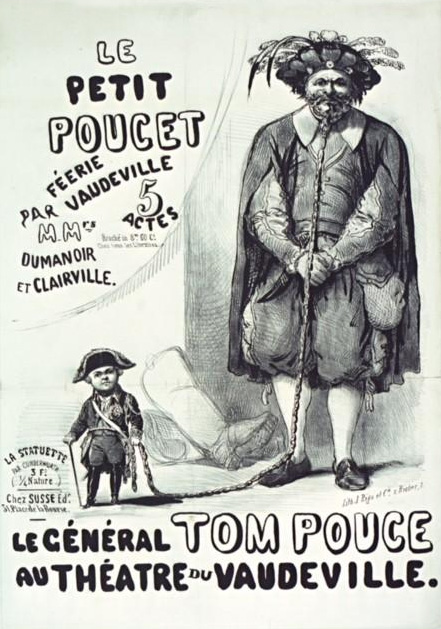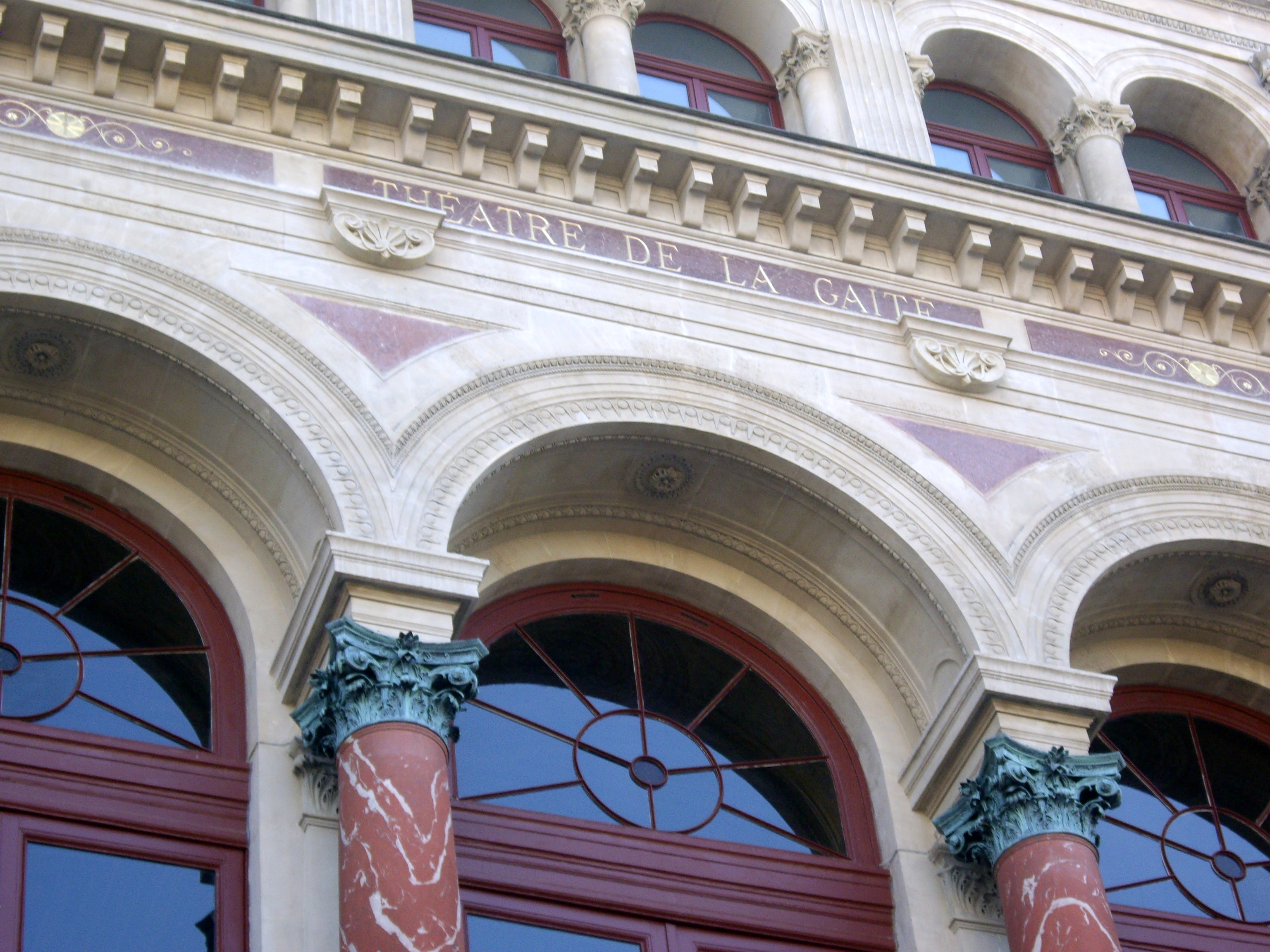|
Edmond De Biéville
Edmond de Biéville, full name Charles-Henri-Étienne-Edmond Desnoyers de Biéville, (30 May 1814 – 1 January 1880 ) was a French journalist and playwright. The poet Fernand Desnoyers (1826-1869) was his brother. A student at the École spéciale militaire de Saint-Cyr in 1832, he made his debut in the vaudeville under the pseudonyme Edmond de Biéville Created from the name of his mother ''née'' Anne-Raison Leduc de Biéville. Although Edmond Biéville, unlike his brothers, had transmitted to his descendants the surname ''Desnoyers de Biéville'', there is no official record of changing his birth name ''Desnoyers''. He was responsible for writing the theatrical reports for the newspaper '' Le Siècle'' from 1856 until his death. Works Theatre * 1836: ''L'Homéopathie'', comédie en vaudevilles in 1 act by Biéville and Narcisse Fournier, Gymnase-Dramatique (13 October) * 1837: ''Sans nom ! ou Drames et Romans'', mystère-folie-vaudeville in 1 act by Biéville and ... [...More Info...] [...Related Items...] OR: [Wikipedia] [Google] [Baidu] |
2nd Arrondissement Of Paris
The 2nd arrondissement of Paris (''IIe arrondissement'') is one of the 20 arrondissements of the capital city of France. In spoken French, this arrondissement is colloquially referred to as ''deuxième'' (second/the second). It is governed locally together with the 1st, 3rd and 4th arrondissement, with which it forms the 1st sector of Paris. Also known as Bourse, this arrondissement is located on the right bank of the River Seine. The 2nd arrondissement, together with the adjacent 8th and 9th arrondissements, hosts an important business district, centred on the Paris Opéra, which houses the city's most dense concentration of business activities. The arrondissement contains the former Paris Bourse (stock exchange) and several banking headquarters, as well as a textile district, known as the Sentier, and the Opéra-Comique's theatre, the Salle Favart. The 2nd arrondissement is the home of Grand Rex, the largest movie theater in Paris. The 2nd arrondissement is also the home of ... [...More Info...] [...Related Items...] OR: [Wikipedia] [Google] [Baidu] |
Théâtre Du Palais-Royal
The Théâtre du Palais-Royal () is a 750-seat Parisian theatre at 38 rue de Montpensier, located at the northwest corner of the Palais-Royal in the Galerie de Montpensier at its intersection with the Galerie de Beaujolais. Brief history Originally known as the Théâtre des Beaujolais, it was a puppet theatre with a capacity of about 750 that was built in 1784 to the designs of the architect Victor Louis. In 1790 it was taken over by Mademoiselle Montansier and became known as the Théâtre Montansier. She began using it for plays and Italian operas translated into French and the following year hired Louis to enlarge the stage and auditorium, increasing its capacity to 1300. After Napoleon's decree on the theatres in 1807 introduced significant constraints on the types of pieces that could be performed, it was used for lighter fare, such as acrobatics, rope dancing, performing dogs, and Neapolitan puppets. In 1812 the theatre was converted into a café with shows. Afte ... [...More Info...] [...Related Items...] OR: [Wikipedia] [Google] [Baidu] |
1814 Births
Events January * January 1 – War of the Sixth Coalition – The Royal Prussian Army led by Gebhard Leberecht von Blücher crosses the Rhine. * January 3 ** War of the Sixth Coalition – Siege of Cattaro: French garrison surrenders to the British after ten days of bombardment. ** War of the Sixth Coalition – Siege of Metz: Allied armies lay siege to the French city and fortress of Metz. * January 5 – Mexican War of Independence – Battle of Puruarán: Spanish Royalists defeat Mexican Rebels. * January 11 – War of the Sixth Coalition – Battle of Hoogstraten: Prussian forces under Friedrich Wilhelm Freiherr von Bülow defeat the French. * January 14 ** Treaty of Kiel: Frederick VI of Denmark cedes the Kingdom of Norway into personal union with Sweden, in exchange for west Pomerania. This marks the end of the real union of Denmark-Norway. ** War of the Sixth Coalition – Siege of Antwerp: Allied forces besiege French Ant ... [...More Info...] [...Related Items...] OR: [Wikipedia] [Google] [Baidu] |
Writers From Paris
A writer is a person who uses written words in different writing styles and techniques to communicate ideas. Writers produce different forms of literary art and creative writing such as novels, short stories, books, poetry, travelogues, plays, screenplays, teleplays, songs, and essays as well as other reports and news articles that may be of interest to the general public. Writers' texts are published across a wide range of media. Skilled writers who are able to use language to express ideas well, often contribute significantly to the cultural content of a society. The term "writer" is also used elsewhere in the arts and music, such as songwriter or a screenwriter, but also a stand-alone "writer" typically refers to the creation of written language. Some writers work from an oral tradition. Writers can produce material across a number of genres, fictional or non-fictional. Other writers use multiple media such as graphics or illustration to enhance the communication o ... [...More Info...] [...Related Items...] OR: [Wikipedia] [Google] [Baidu] |
French Male Journalists
French (french: français(e), link=no) may refer to: * Something of, from, or related to France ** French language, which originated in France, and its various dialects and accents ** French people, a nation and ethnic group identified with France ** French cuisine, cooking traditions and practices Fortnite French places Arts and media * The French (band), a British rock band * "French" (episode), a live-action episode of ''The Super Mario Bros. Super Show!'' * ''Française'' (film), 2008 * French Stewart (born 1964), American actor Other uses * French (surname), a surname (including a list of people with the name) * French (tunic), a particular type of military jacket or tunic used in the Russian Empire and Soviet Union * French's, an American brand of mustard condiment * French catheter scale, a unit of measurement of diameter * French Defence, a chess opening * French kiss, a type of kiss involving the tongue See also * France (other) * Franch, a surname * French ... [...More Info...] [...Related Items...] OR: [Wikipedia] [Google] [Baidu] |
19th-century French Journalists
The 19th (nineteenth) century began on 1 January 1801 (Roman numerals, MDCCCI), and ended on 31 December 1900 (Roman numerals, MCM). The 19th century was the ninth century of the 2nd millennium. The 19th century was characterized by vast social upheaval. Slavery was abolitionism, abolished in much of Europe and the Americas. The Industrial Revolution, First Industrial Revolution, though it began in the late 18th century, expanding beyond its British homeland for the first time during this century, particularly remaking the economies and societies of the Low Countries, the Rhineland, Northern Italy, and the Northeastern United States. A few decades later, the Second Industrial Revolution led to ever more massive urbanization and much higher levels of productivity, profit, and prosperity, a pattern that continued into the 20th century. The Gunpowder empires, Islamic gunpowder empires fell into decline and European imperialism brought much of South Asia, Southeast Asia, and almost ... [...More Info...] [...Related Items...] OR: [Wikipedia] [Google] [Baidu] |
19th-century French Dramatists And Playwrights
The 19th (nineteenth) century began on 1 January 1801 ( MDCCCI), and ended on 31 December 1900 ( MCM). The 19th century was the ninth century of the 2nd millennium. The 19th century was characterized by vast social upheaval. Slavery was abolished in much of Europe and the Americas. The First Industrial Revolution, though it began in the late 18th century, expanding beyond its British homeland for the first time during this century, particularly remaking the economies and societies of the Low Countries, the Rhineland, Northern Italy, and the Northeastern United States. A few decades later, the Second Industrial Revolution led to ever more massive urbanization and much higher levels of productivity, profit, and prosperity, a pattern that continued into the 20th century. The Islamic gunpowder empires fell into decline and European imperialism brought much of South Asia, Southeast Asia, and almost all of Africa under colonial rule. It was also marked by the collapse of the la ... [...More Info...] [...Related Items...] OR: [Wikipedia] [Google] [Baidu] |
École Spéciale Militaire De Saint-Cyr Alumni , a Japanese video-games developer/publisher
{{disambiguation, geo ...
École may refer to: * an elementary school in the French educational stages normally followed by secondary education establishments (collège and lycée) * École (river), a tributary of the Seine flowing in région Île-de-France * École, Savoie, a French commune * École-Valentin, a French commune in the Doubs département * Grandes écoles, higher education establishments in France * The École, a French-American bilingual school in New York City Ecole may refer to: * Ecole Software This is a list of Notability, notable video game companies that have made games for either computers (like PC or Mac), video game consoles, handheld or mobile devices, and includes companies that currently exist as well as now-defunct companies. ... [...More Info...] [...Related Items...] OR: [Wikipedia] [Google] [Baidu] |
Louis Gustave Vapereau
Louis Gustave Vapereau (4 April 1819 – 18 April 1906) was a French writer and lexicographer famous primarily for his dictionaries, the ''Dictionnaire universel des contemporains'' and the ''Dictionnaire universel des littérateurs''. Biography Born in Orléans, Louis Gustave Vapereau studied philosophy at the ''École Normale Supérieure'' from 1838 to 1843, writing his thesis on Pascal's ''Pensées'' under the supervision of Victor Cousin. He taught philosophy at Tours until the establishment of the Second French Empire in 1852, when his republican principles cost him his position. Vapereau returned to Paris to study law, and in 1854 joined the French bar. He did not engage in any legal practice and returned to writing shortly afterwards. In 1858, he published the ''Dictionnaire universel des contemporains'' and from 1859 to 1869 he edited the ''L'Année littéraire et dramatique''. After the collapse of the Empire, Vapereau was appointed prefect of Cantal on 14 September ... [...More Info...] [...Related Items...] OR: [Wikipedia] [Google] [Baidu] |
Dumanoir
Philippe François Pinel, known as Dumanoir (31 July 1806 – 16 November 1865), was a French playwright and librettist. Biography Dumanoir was born in Capesterre-Belle-Eau, Guadeloupe. He was the son of Mrs. Pinel-Dumanoir, whose family planted the palm trees lining the ''Allée Dumanoir'' in Guadeloupe. He left Guadeloupe in 1816. Dumanoir wrote in the theatrical genre of Comédie en vaudevilles. He was director of the Théâtre des Variétés from 1837 to 1839. In 1844, he wrote in collaboration with Adolphe d'Ennery, an eponymous drama about Don César de Bazan, one of the characters in ''Ruy Blas'' by Victor Hugo. He died in Pau. List of major works Plays * 1842: ''Le Chevalier d'Éon'', comedy in 3 acts, (with Jean-François Bayard), Théâtre des Variétés * 1839: ''Les Premières Armes de Richelieu'' (with Jean-François Bayard), Théâtre du Palais Royal * 1840: ''Indiana et Charlemagne'' (with Jean-François Bayard), Théâtre du Palais Royal * 1842: ''Ma ma� ... [...More Info...] [...Related Items...] OR: [Wikipedia] [Google] [Baidu] |
Théâtre De La Gaîté (rue Papin)
In 1862 during Haussmann's modernization of Paris, the Théâtre de la Gaîté of the boulevard du Temple was relocated to the rue Papin across from the Square des Arts et Métiers."History: The Venue, 150 Years in the Core of Paris" at the La Gaîté-Lyrique website. Retrieved 11 August 2011. The new theatre, built in an Italian style to designs of the architects Jacques-Ignace Hittorff and Alphonse Cusin, opened on 3 September. [...More Info...] [...Related Items...] OR: [Wikipedia] [Google] [Baidu] |






